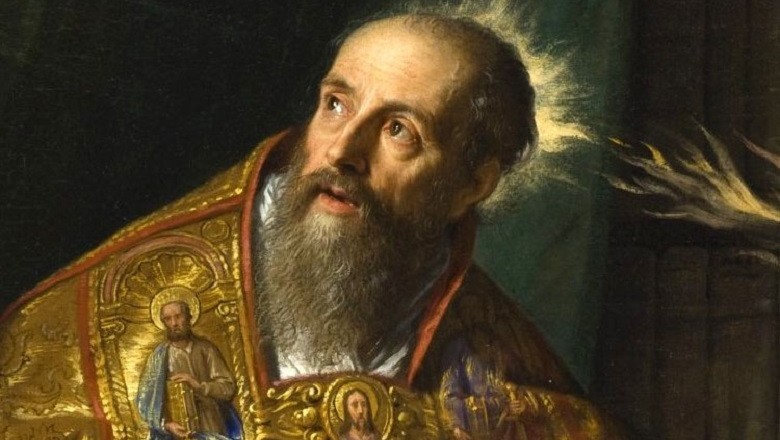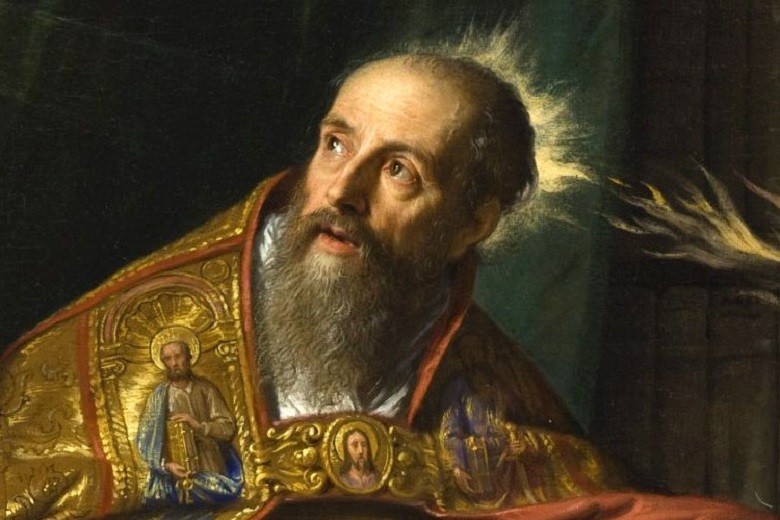
views
The Intriguing Journey of St. Augustine: A Human-Interest Story
Early Life and Education
St. Augustine was born on November 13, 354, in Tagaste, Numidia, which is now known as Souk Ahras, Algeria. From modest beginnings in a Roman community nestled in a river valley, Augustine's early life was marked by intellectual promise and ambition. His parents, despite facing financial constraints, ensured he received an exceptional education, sending him first to Tagaste, then to the university town of Madauros, and finally to Carthage. These investments paid off, as Augustine quickly distinguished himself as a brilliant student, particularly in the field of rhetoric, the esteemed discipline for Roman gentlemen.
Augustine's Ambitious Ascent
Driven by restlessness and ambition, Augustine left Africa at the age of 28 to carve out a successful career in Rome. Initially teaching in Rome, his talents soon earned him the prestigious position of imperial professor of rhetoric in Milan, the de facto capital of the Western Roman Empire at the time. This role placed him in the heart of the empire's intellectual and political life, setting the stage for his eventual rise to prominence.
Intellectual and Theological Contributions
Augustine's intellectual journey is notable for his adaptation of classical thought, particularly the Platonic tradition, to Christian teachings. This synthesis created a robust theological framework that had a profound and lasting influence on Latin Christianity. Augustine's writings, including the seminal works "Confessions" and "The City of God," have shaped biblical exegesis and laid the foundation for much of medieval and modern Christian thought.
His theological style, marked by clarity and depth, set the tone for Latin Christianity in a manner only paralleled by the Scriptures themselves. His ability to engage with the philosophical ideas of his time and integrate them into a Christian context made his works widely read and imitated throughout Latin Christendom.
Augustine's Personal Struggles and Conversion
Despite his professional success, Augustine's personal life was marked by inner turmoil and a relentless search for truth. His "Confessions," a deeply personal account, reveals his struggles with moral and spiritual dilemmas, his intense introspection, and his eventual conversion to Christianity. This journey from a life of ambition and worldly success to one of spiritual devotion and service had a profound impact not only on Augustine but on the broader Christian community.
Role as Bishop of Hippo
In 396, Augustine became the bishop of Hippo Regius (now Annaba, Algeria), a position he held until his death in 430. As bishop, he was not only a spiritual leader but also a prolific writer and thinker. His numerous works, totaling over five million words, demonstrate the sharpness of his mind and his enduring ability to captivate readers. These writings cover a wide range of topics, from theology and philosophy to pastoral care and moral guidance.
Contemporary Relevance
Augustine's work continues to hold contemporary relevance due to its profound insights and theological depth. His membership in a religious community that was dominant in the West during his time, and remains so today, further amplifies his influence. Both modern Roman Catholic and Protestant Christianity owe much to Augustine, though each tradition has, at times, grappled with the more challenging aspects of his thought.
For example, Augustine's views on human freedom and divine predestination have sparked extensive debate and interpretation. Similarly, his perspectives on sexuality, intended to be humane, have sometimes been received as restrictive. These complexities make Augustine a figure of both reverence and contention, highlighting the enduring impact of his ideas.
Legacy and Influence
Augustine's legacy is one of intellectual and spiritual transformation. His ability to adapt classical philosophical traditions to Christian doctrine created a theological system of immense power and influence. His writings, particularly "Confessions" and "The City of God," remain foundational texts for understanding Christian theology and philosophy.
Moreover, Augustine's life story—his early ambitions, personal struggles, and eventual spiritual awakening—resonates with readers across the ages. His journey from a seeker of worldly success to a dedicated servant of God exemplifies the transformative power of faith and intellect.
In Conclusion
St. Augustine's life and works represent a remarkable blend of intellectual rigor, spiritual depth, and personal transformation. His contributions to Christian thought have left an indelible mark on theology and philosophy, shaping the course of Western Christianity. As we reflect on his journey, we are reminded of the enduring power of faith, the importance of intellectual inquiry, and the profound impact one individual can have on the world. Augustine's story is not just one of historical significance but also a source of inspiration and insight for contemporary readers.





















Comments
0 comment